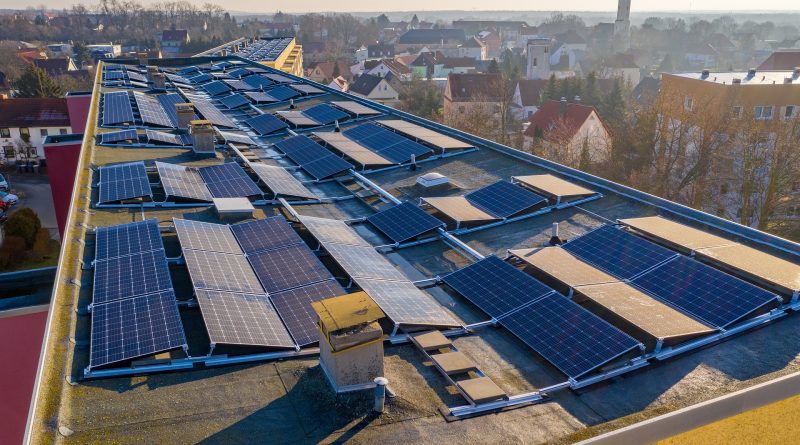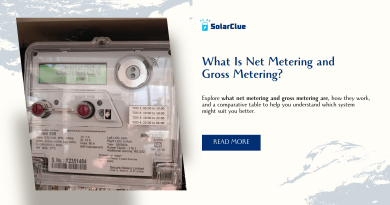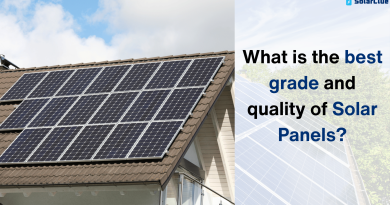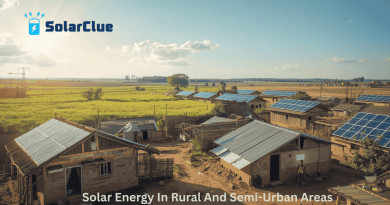Do solar systems work when the grid is down?
In recent years, solar power has gained significant popularity as a reliable and renewable energy source. With solar panels becoming more affordable and efficient, many homeowners are adopting solar systems to power their homes and save on electricity bills. However, one question that often arises is whether these solar systems continue to work when the grid is down. In this blog, we will dive into this topic and explore how solar systems function during power outages.
Table of Contents
Understanding the Basics of Solar Systems
Before we delve into the main question, it’s crucial to understand how solar systems operate. Solar panels, also known as photovoltaic (PV) panels, convert sunlight into direct current (DC) electricity. This DC electricity is then converted into alternating current (AC) electricity through an inverter, making it compatible with household appliances and the electrical grid.
The Role of the Electrical Grid
The electrical grid plays a critical role in our daily lives, supplying power to our homes and businesses. During normal operation, solar systems are interconnected with the grid, allowing excess electricity to flow back into the grid, reducing dependence on traditional power sources. This process is known as net metering, where homeowners receive credits for the excess electricity they produce.
Do Solar Systems Work When the Grid is Down?
The main concern arises when there is a power outage and the electrical grid is no longer supplying electricity. In many cases, solar systems are designed to shut down during outages to ensure the safety of workers repairing the grid. This is done through a mechanism called anti-islanding, which prevents solar systems from supplying electricity back to the grid during a blackout.
However, this does not mean that solar systems are completely useless during power outages. Homes with solar batteries or backup systems have the advantage of storing excess electricity generated during daytime hours. These batteries allow homeowners to continue using solar power even when the grid is down.
Solar System and Battery Backup
The integration of solar panel systems with battery backup is becoming increasingly popular. Solar batteries, like those offered by Tesla, LG Chem, and other manufacturers, allow homeowners to store excess electricity generated by their solar panels. These batteries can then be used during nighttime hours or in the event of a power outage.
During normal operation, solar panels charge the batteries, ensuring they are fully charged by the end of the day. When the grid is down, the battery backup system helps power essential appliances and electrical devices in the home.
Benefits of Solar System and Battery Backup
Investing in a solar system with a battery backup not only provides electricity during power outages but also offers several other benefits:
1. Energy Independence: With a solar system and battery backup, homeowners can reduce their reliance on the electrical grid. This independence offers peace of mind during power outages or during times of high demand on the grid.
2. Financial Savings: Solar battery systems allow homeowners to use stored electricity during peak hours when electricity prices are high. This can lead to significant savings on electricity bills in regions with time-of-use pricing structures.
3. Environmental Impact: By using stored solar energy during a power outage, homeowners reduce their carbon footprint and contribute to a cleaner, greener environment.
Conclusion
Solar systems can work during power outages as long as they are coupled with battery backup. While traditional solar systems shut down during blackouts due to anti-islanding mechanisms, solar+battery setups provide homeowners with a reliable and sustainable source of electricity during grid failures. Investing in solar panels with a battery backup not only ensures continuous power supply but also offers numerous financial and environmental benefits. With advancements in technology and decreasing costs, solar system and battery backup combinations are becoming a viable solution for those seeking energy independence and resilience in an ever-changing world.
Experience uninterrupted power with SolarClue®! Explore solar resilience for reliable energy during grid outages.
Frequently Asked Questions
Yes, with the right setup, solar systems can provide power independently of the grid.
Solar systems with battery storage or backup systems can continue to generate and supply power during grid outages.
Systems with battery storage or backup capabilities are recommended for continuous power during grid outages.
The duration depends on factors such as battery capacity, energy usage, and sunlight availability.
Yes, properly designed solar systems can serve as the primary power source during grid outages.
Battery storage allows solar systems to provide power even when sunlight is limited.
Backup systems, such as inverters with built-in battery support, are often needed for continuous power during outages.
In some cases, retrofitting with the addition of batteries or backup solutions can enable solar systems to work during outages.
Incentives vary by region, but some areas offer rebates for resilient solar systems.
Yes, solar systems can reduce dependence on the grid, providing sustainable and cost-effective energy solutions beyond grid outages.




